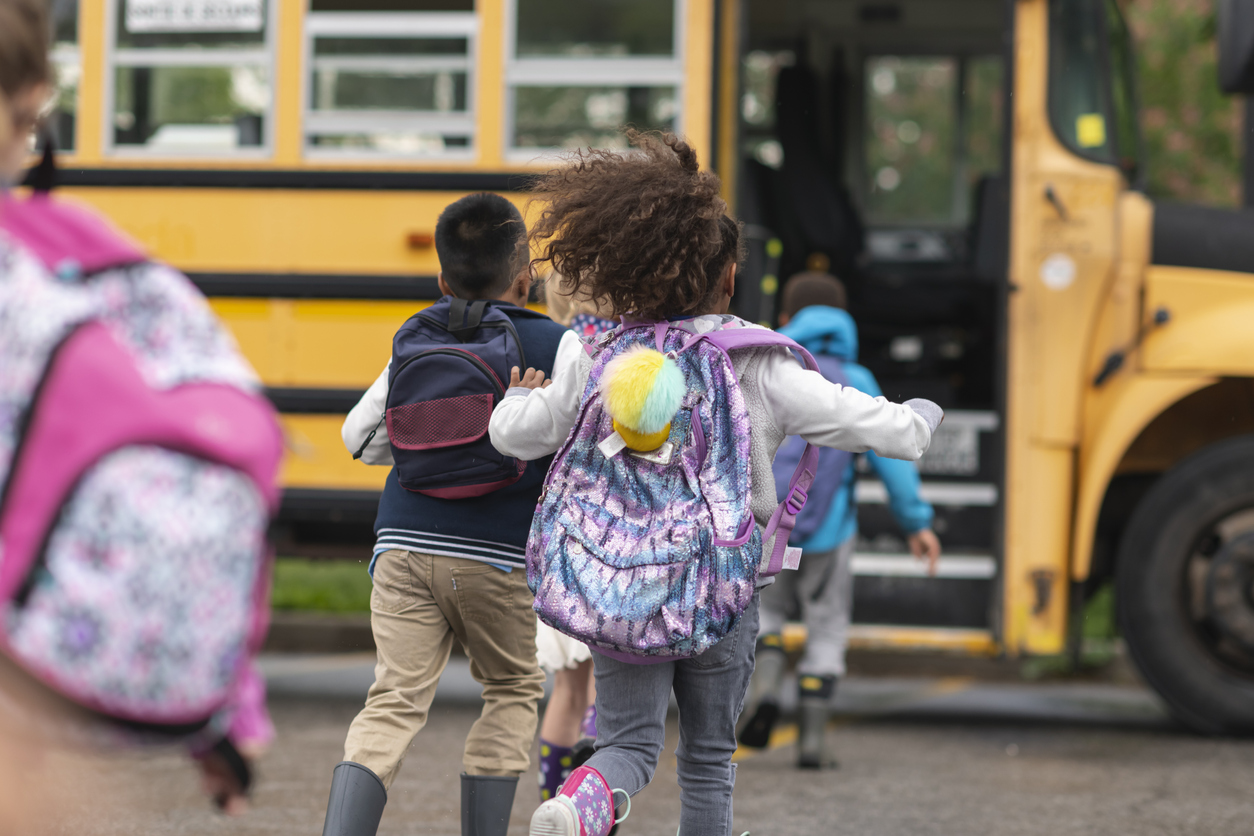How to prepare your child for a new school year
Key takeaways:
- Get back on a morning schedule
- Make sure your child gets enough sleep
- Lay out clothes the night before
- Ensure your child has a nutritious diet
- Cut back on electronics
- Visit your child’s school before the first day
- Let your child talk about his/her fears
Even though it seems like the final school bell just rang, a new school year is set to begin. Summer is a time when schedules go out the window in favor of vacations, activities with friends, and staying up late. Getting back into a school routine can be a challenge, especially after everything we’ve experienced due to COVID.
We provide seven tips for establishing a back-to-school routine and discuss ways in which The Learning Lab can help children with learning differences succeed.
Tip 1: Create a new morning schedule
During the school year, you stick to a strict schedule, especially in the morning. Even though school hasn’t started yet, it’s a good idea to start getting used to a new schedule now so the first day isn’t such a shock to the system. Have your child go to bed earlier and set an alarm so he/she gets up at the right time.
Then, go through your entire morning routine, including showering, getting dressed, breakfast, preparing lunches, and getting out the door. Do this for one to two weeks before school starts.
Tip 2: Create a new bedtime routine
Sleep is essential for your child’s physical, mental, and emotional health and development.
That’s why your nighttime routine is just as important as your morning one. During the summer, it’s likely your child stayed up later. School means getting up earlier, so children need to get used to going to bed earlier in order to get enough sleep. Start getting into an earlier sleep routine now.
Kids need certain amounts of sleep at different ages. It’s very important for their developing brains and bodies.
- Pre-school (3-5 years) = 10-13 hours
- School-aged (6-13 years) = 9-11 hours
- Teens (14-17 years) = 8-10 hours
Tip 3: Lay out their clothes the night before
A lost shoe or wrinkled shirt can throw the whole morning into chaos and make everyone late. Save everyone the headache and lay out your children’s clothes the night before (including socks & shoes)! Practice this routine a few times before the first day of school.
Tip 4: Watch your child’s diet
Good nutrition is so important for children and teens. The right foods will give your children energy, help them focus, and help them do better in school. Being hungry can distract children in class, while foods with a lot of sugar can lead to an energy crash.
It’s a good idea to mimic what your children will eat at breakfast and lunch at home. Make nutritious meals and snacks and make plans for what they will eat for breakfast and lunch come school time.
Tip 5: Scale back on the electronics
Electronics like televisions, smartphones, games, and computers are a major part of our lives. They can also be a major distraction, keeping your child from finishing homework. Start scaling back on electronics use by turning them OFF during after-school hours.
Tip 6: Tour the school before the first day
If you can, make it a point to visit your child’s school and tour the building, especially if it’s a new school. Even if your child is returning to the same school, things may have changed, as far as the layout or new additions. If the school offers orientation days, take advantage of the opportunity. Your child might even be able to meet some of his/her classmates, which can make the first day a little easier on the nerves.
Tip 7: Communicate with your children
Your child is probably nervous about going back to school, particularly if in-person learning was limited last year. Even teens might feel some anxiety about returning. Talk to your children and encourage them to discuss their feelings and fears. Keeping the lines of communication open will help ease anxiety and ensure your children are ready for the first day and week of school.
Getting academic help for your child
If your child struggles in school or has learning differences such as dyslexia or ADHD, it’s important to tackle the issue at the beginning of the year. Don’t wait until your child has fallen behind. Get your child the help he/she needs now.
The Learning Lab offers support and educational aids for children with learning differences. We also offer support for children who may need extra attention in subjects like reading, writing, and math. We are the place to go to help rebuild your child’s confidence. Our goal is to prepare your child for a lifetime of learning while helping him/her close academic gaps.
The Learning Lab programs
Homework Lab
Our Homework Lab is designed to teach your child executive functioning skills (which include time management, planning, and organization) while also providing academic support.
What we do:
- Reteach challenging material
- Organization, focus, and executive functioning skills coaching
- Test prep and study skills
- Individualized Homework Management
I3 Lab (Intense, Individualized, Instruction)
We offer one-on-one individualized tutoring sessions with certified teachers to remediate and close learning gaps.
Based on a placement screening, one (or a combination of) our evidence-based curricula will be implemented to help your child in specific areas.
Reading/writing curriculum:
- Barton Reading and Spelling System©
- Fast ForWord®
- Foundation in Sounds™
- IEW© (Institute for Excellence in Writing)
- Reading Assistant Plus™
- Seeing Stars®
- Visualizing and Verbalizing Multi-Sensory Language-Based Programming®
- Wilson Just Words® (4th grade+)
- Winston Grammar©
Math curriculum:
- DreamBox Math©
- Math Remediation
- TouchMath©
Academic software
We offer adaptive and intuitive reading software that uses a brain-based approach to help students with dyslexia, CAPD, and ADHD catch up and master reading and writing skills. Our main focus is on helping students build the necessary cognitive skills that impact reading and learning, such as: Focus, Attention, Memory, Processing, and Sequencing.
We help students build…
- Grammar skills
- Phonemic awareness
- Phonics
- Reading comprehension and fluency
- Semantics and mechanics
- Vocabulary
Look to the Learning Lab for academic support
If your child needs extra help, The Learning Lab is here. We offer in-person tutoring and virtual learning tools to help children catch up if they’ve fallen behind. We also aid them in learning new material as the school year gets underway. No matter your child’s needs, you can find help here in South Florida.
The Learning Lab recently expanded to provide enhanced learning support to families throughout Broward County, including those in Davie, Cooper City, Plantation, and Fort Lauderdale.
Contact us today for more information.





